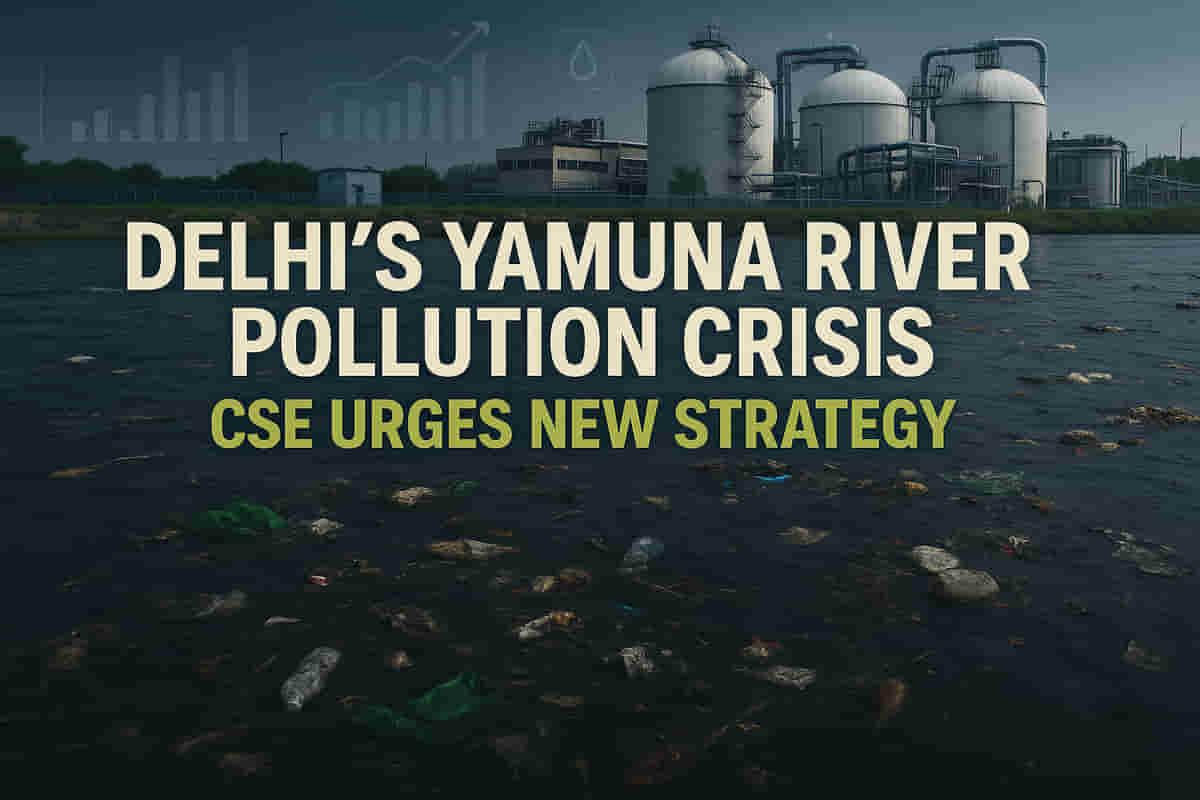Centre for Science and Environment Calls for Reworked Plan to Clean Yamuna River, Citing Ineffective Spending
Environment
|
30th October 2025, 10:59 AM

▶
Short Description :
Detailed Coverage :
The Centre for Science and Environment (CSE) has issued a statement highlighting that substantial financial investments in cleaning the Yamuna River have failed to yield desired results, emphasizing the need for a fundamentally reworked plan rather than just increased spending. Between 2017 and 2022, the Delhi government reportedly spent over Rs 6,856 crore, and the city now possesses 37 Sewage Treatment Plants (STPs) capable of treating most generated sewage. However, the 22-kilometer stretch of the Yamuna within Delhi, which accounts for 80% of the river's pollution load, continues to be severely contaminated, often existing as mere sewage for nine months a year.
CSE identified three primary reasons for this persistent pollution: a lack of accurate data on wastewater generation, including unofficial water usage; the discharge of waste from desludging tankers directly into drains or the river without proper treatment; and the mixing of treated wastewater with untreated sewage in Delhi's drains. This mixing negates the efforts of STPs and renders the treatment investments ineffective.
While acknowledging efforts like the Interceptor Sewer Project and stringent effluent standards for STPs (10 mg/l compared to national 30 mg/l), the report notes that 23 out of 37 STPs fail to meet these standards, requiring costly upgrades. CSE's five-point action agenda includes ensuring collection and treatment of faecal sludge from unsewered areas, preventing the mixing of treated and untreated wastewater, maximizing the reuse of treated water (currently only 10-14% is reused), upgrading STPs for reuse, and reworking plans for the Najafgarh and Shahdara drains which contribute 84% of the pollution.
Impact: This news has a significant impact on environmental policy, public health, and resource management in India. It highlights systemic issues in pollution control and infrastructure management, potentially leading to policy reforms and increased focus on effective governance. While it does not directly impact stock prices, it raises awareness about environmental sustainability and may influence future investments in water treatment and infrastructure sectors. Rating: 7.